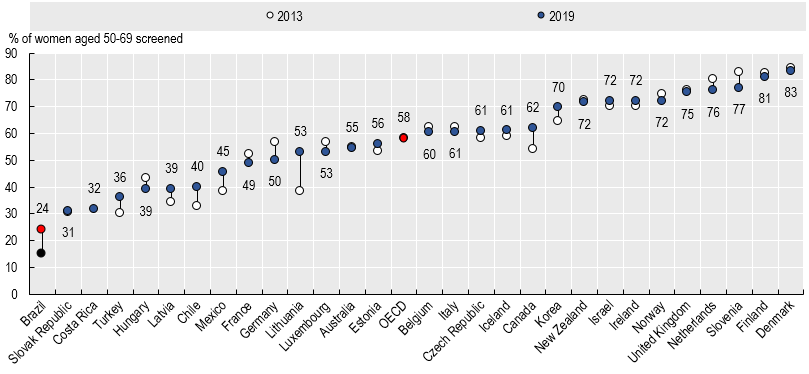Health

Primary Health Care in Brazil
Primary health care in Brazil is well-organised, the result of sustained commitment
to providing high quality primary health care for the whole population. Brazil has
implemented a set of reforms over the past decades to improve the distribution of
doctors, develop new forms of service organisation, introduce new financing models,
and implement a range of quality improvement initiatives. This review uses internationally
recognised indicators and policy frameworks to examine the performance of primary
health care in Brazil. While the review points to notable successes, Brazil continues
to face challenges as its population ages, risk factors such as obesity are on the
rise, and emerging pandemic threats require resilience and adaptability. The report
points to key actions that Brazil should consider in the coming years to strengthen
performance of primary health care, especially screening and prevention for major
non-communicable diseases, improve quality of primary health care provision, address
workforce shortages and pursue a digital transformation. A companion publication with
a health system review of Brazil examines the main challenges and approaches needed
to improve the performance of the Brazilian health system.
Published on December 14, 2021Also available in: Portuguese
In series:OECD Reviews of Health Systemsview more titles
TABLE OF CONTENTS
| Foreword | |
| Acronyms and abbreviations | |
| Executive summary | |
| Primary health care in Brazil: Assessment and recommendations | |
| Health care needs and organisation of primary health care in Brazil | |
| Screening in primary health care for the main chronic non-communicable diseases in Brazil | |
| Quality and outcomes in primary health care | |
| Workforce challenges in primary health care in Brazil | |
| The digital transformation of primary health care in Brazil |
Powered by OECD iLibrary

 Follow us on Twitter via
Follow us on Twitter via